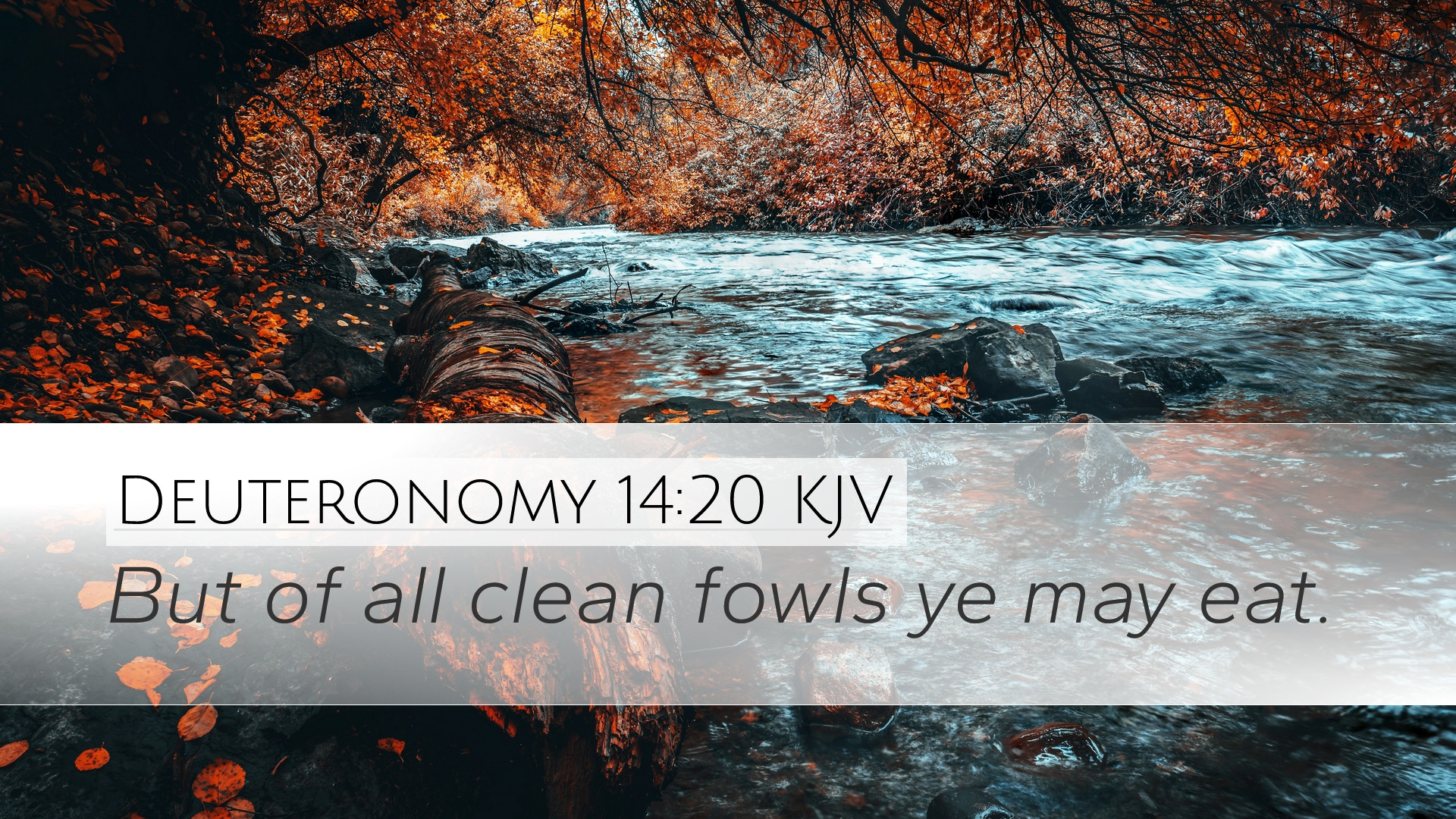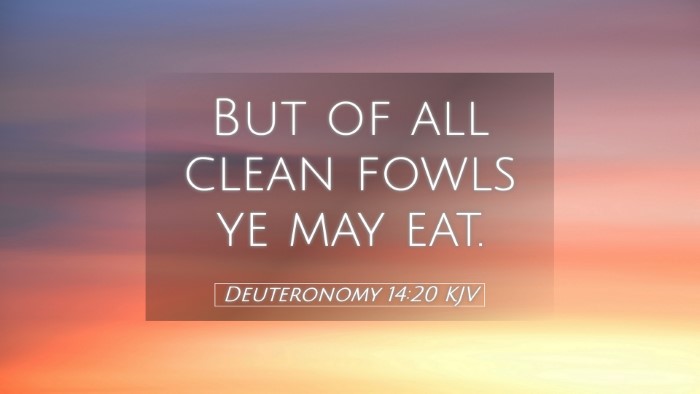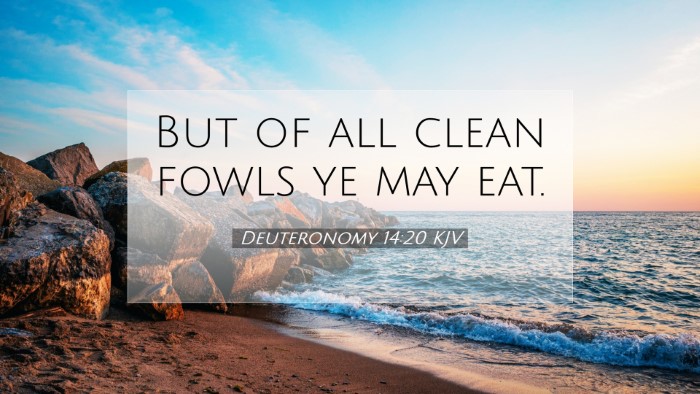Commentary on Deuteronomy 14:20
Verse: "But of all clean birds ye shall eat." (Deuteronomy 14:20)
Introduction
The book of Deuteronomy serves not only as a historical record but also as a profound legal and moral guide for the Israelites. In Deuteronomy 14, Moses continues to instruct the Israelites on dietary laws and their significance in maintaining holiness and separation from other nations. This verse specifically addresses the dietary restrictions concerning birds, indicating God's concern for both physical and spiritual purity.
Contextual Background
The dietary laws given in Deuteronomy are part of a larger set of regulations that outline what is considered clean and unclean. The Israelites were to follow these laws to create a distinct identity as God’s chosen people. The purity laws served as a means of distinguishing themselves from the surrounding pagan cultures, wherein the distinction not only informed their diet but also reflected their covenant relationship with God.
The Significance of Clean Birds
In this verse, the phrase "clean birds" encompasses those species that were deemed permissible for consumption, contrasting with the unclean birds mentioned earlier in the chapter. According to traditional definitions, clean birds exemplified characteristics of allowed birds, such as having a crop and a gizzard, which can be inspected for cleanliness. The emphasis on clean birds reflects God’s order in creation and His intention for His people to reflect holiness through their choices.
- God's Sovereignty: The dietary laws indicate God's sovereignty over His creation. By delineating what is clean and unclean, God asserts His authority and control.
- Symbolism of Cleanliness: Clean birds represent purity and signify a higher standard of living. The act of consuming clean birds becomes a tangible way for the Israelites to demonstrate their adherence to God’s commandments.
Theological Implications
This verse invites deeper theological reflection on God's expectations of His people. The holiness of God demands a holy people, which in turn involves making choices that honor Him.
- Separation from Sin: Just as the Israelites were to separate clean from unclean, modern believers are called to discern between righteousness and unrighteousness in their lives.
- Christological Lens: From a New Testament perspective, the understanding of clean and unclean is fulfilled in Christ. He fulfilled the law and embodies the ultimate sacrifice, rendering the dietary laws obsolete in the sense of salvation, yet still inviting believers to live holy lives.
Insights from Commentators
The insights from various theological commentators provide clarity and depth to the implications of this scripture.
- Matthew Henry: In his commentary, Henry emphasizes that the rules regarding clean and unclean serve the purpose of instructing the Israelites in holiness. He remarks that these dietary laws are to be seen as part of a broader moral instruction that signifies God's call to His people to be distinct and separate.
- Albert Barnes: Barnes notes that what is clean is often a metaphor for a pure lifestyle, urging believers to remove that which corrupts, much like the dietary laws encourage the physical removal of unclean foods. He highlights that the symbolism extends beyond diet into aspects of spiritual cleanliness.
- Adam Clarke: Clarke suggests that these directives were also practical, laying a foundation for health among the Israelites. By adhering to God's guidelines, the community thrived not only spiritually but also physically, demonstrating the holistic nature of God’s commandments.
Application for Today
For contemporary believers, the directives in Deuteronomy 14:20 can serve significant applications:
- Holiness in Lifestyle: Just as the Israelites were instructed on dietary choices, Christians today are encouraged to make conscious decisions reflecting a holy lifestyle, separating themselves from morally or spiritually unwholesome influences.
- Body as a Temple: The New Testament teaching on the body being a temple (1 Corinthians 6:19-20) aligns with the idea of cleanliness and purity. This verse invites believers to consider how lifestyle choices, including diet, can play a role in honoring God.
- Reflective Choices: The process of discerning what is clean versus unclean can prompt deeper reflection on choices in various aspects of life, fostering a mindset that seeks God’s grace in all areas.
Conclusion
Deuteronomy 14:20 represents more than mere dietary instruction; it is a call to holiness and a reminder of the importance of living in accordance with God’s will. The insights gleaned from diverse commentaries deepen our understanding of the sacredness of God's laws and the relevance these principles hold for believers today. As we engage with scripture, we are reminded not only of the historical implications for Israel but also of the call to holiness that echoes throughout time.


